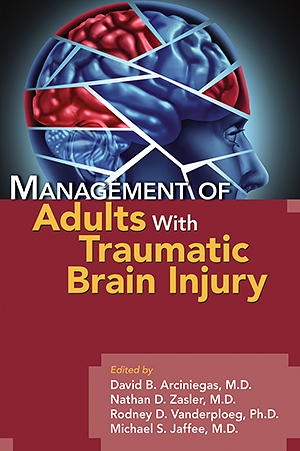Chapter 11.Apathy
Sections
Excerpt
Apathy, or the apathy syndrome, is a common neuropsychiatric consequence of traumatic brain injury (TBI) and is associated with poor response to treatment, poor prognosis for the associated condition, family and caregiver distress, and poor functional recovery (van Reekum et al. 2005). Post-TBI apathy has not received research attention adequate to allow consensus as to its definition, measurement, prevalence, or treatment, and therefore apathy in other conditions (e.g., Alzheimer disease, Parkinson disease) is often used as a model for understanding and managing apathy after TBI. The validity of such cross-condition analogies is tenuous, so appropriate caution must be exercised when considering the findings and recommendations regarding post-TBI apathy discussed in this chapter.
Access content
To read the fulltext, please use one of the options below to sign in or purchase access.- Personal login
- Institutional Login
- Sign in via OpenAthens
- Register for access
-
Please login/register if you wish to pair your device and check access availability.
Not a subscriber?
PsychiatryOnline subscription options offer access to the DSM-5 library, books, journals, CME, and patient resources. This all-in-one virtual library provides psychiatrists and mental health professionals with key resources for diagnosis, treatment, research, and professional development.
Need more help? PsychiatryOnline Customer Service may be reached by emailing [email protected] or by calling 800-368-5777 (in the U.S.) or 703-907-7322 (outside the U.S.).



